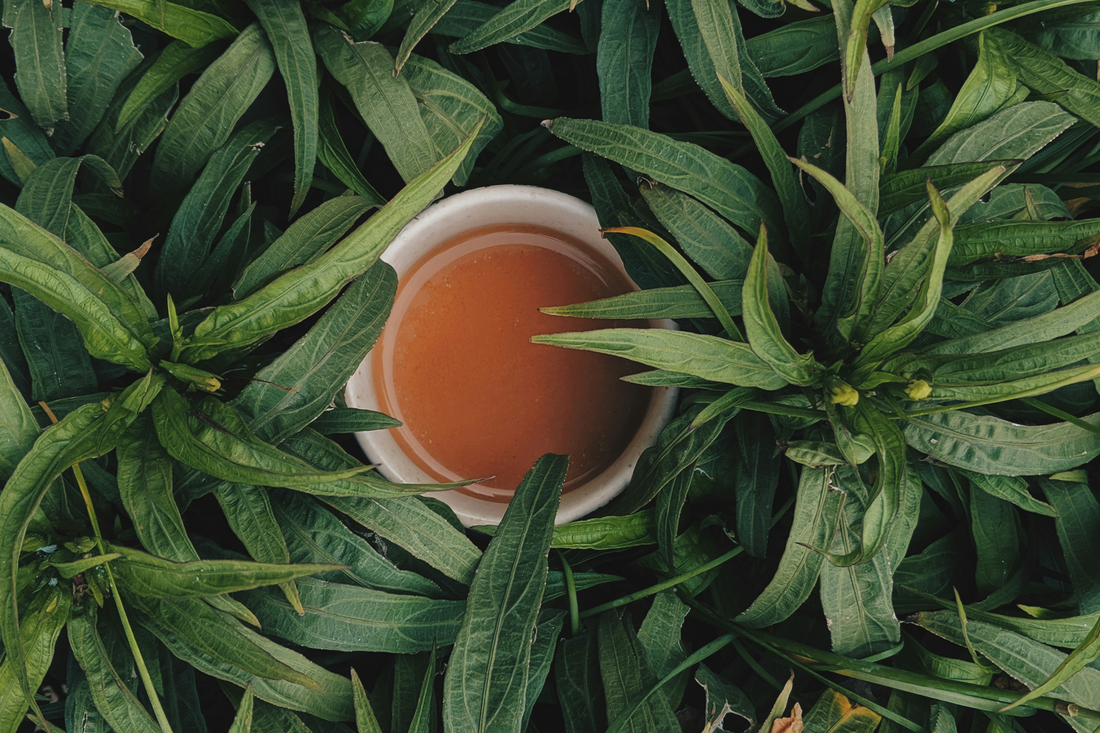
Natural Sources of Collagen
Share
Collagen, often hailed as the elixir of youth, is a crucial protein that supports skin elasticity, joint health, and overall vitality. While collagen supplements have gained popularity in recent years, many prefer to obtain this essential protein from natural sources. Fortunately, nature offers a plethora of collagen-rich foods that can nourish our bodies from within. Let's chat about the diverse array of natural sources of collagen and how they can benefit our health and well-being.
Bone Broth
Bone broth, revered for its rich flavor and numerous health benefits, is perhaps one of the most potent sources of collagen. Made by simmering animal bones and connective tissue for an extended period, bone broth is teeming with collagen, gelatin, and essential amino acids. Regular consumption of bone broth can promote skin elasticity, support joint health, and aid in digestion. Whether sipped as a comforting beverage or used as a base for soups and stews, bone broth is a nourishing addition to any diet.
Fish
Fish, particularly those with edible bones and skin, are excellent sources of collagen. Types of fish such as salmon, mackerel, and sardines are rich in collagen peptides, omega-3 fatty acids, and other nutrients essential for skin health and overall well-being. Consuming fish regularly can help maintain skin elasticity, strengthen hair and nails, and support cardiovascular health. Incorporate fish into your meals by grilling, baking, or poaching for a delicious and nutritious boost of collagen.
Chicken Skin and Cartilage
Chicken skin and cartilage may not be the most glamorous parts of the bird, but they are treasure troves of collagen. Collagen is abundant in the skin and cartilage of poultry, making them valuable additions to collagen-rich diets. When preparing chicken, consider leaving the skin on to retain its collagen content. Additionally, making homemade chicken broth using bones, skin, and cartilage can yield a flavorful and nutrient-dense liquid that nourishes the body from within.
Egg Whites
Egg whites are not only a versatile culinary ingredient but also a source of high-quality protein, including collagen. While egg yolks contain most of the fat and cholesterol in eggs, the whites are primarily composed of protein, including collagen peptides. Incorporating egg whites into your diet can provide essential amino acids necessary for collagen synthesis and tissue repair. Whip up a fluffy omelet, add egg whites to smoothies, or bake protein-rich treats for a collagen-packed meal or snack.
Leafy Greens and Vegetables
While not direct sources of collagen, leafy greens and vegetables play a vital role in supporting collagen production and skin health. Foods rich in vitamin C, such as kale, spinach, broccoli, and bell peppers, are essential for collagen synthesis. Vitamin C is a cofactor in the enzymatic reaction that converts proline and lysine into collagen fibers, making it crucial for maintaining healthy skin, joints, and connective tissue. Incorporate a variety of colorful fruits and vegetables into your diet to ensure an ample supply of collagen-supporting nutrients.
From bone broth to fish and vegetables, nature provides an abundance of collagen-rich foods that can nourish our bodies and promote overall health and well-being. By incorporating these natural sources of collagen into our diets, we can support skin elasticity, joint function, and vitality from within.
